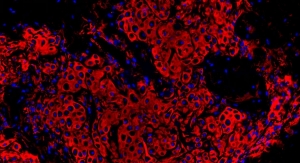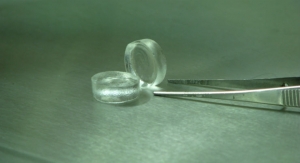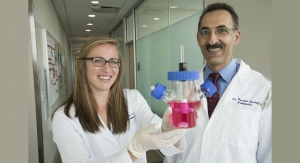Smith & Nephew Acquires First-Line Cartilage Repair Product
Smith & Nephew Acquires First-Line Cartilage Repair Product
The product is mixed with blood and implanted into the joint after a microfracture procedure.
Smith & Nephew plc has acquired BST-CarGel, a first-line cartilage repair product used along with microfracture and other bone marrow stimulation techniques for the initial treatment of most sizes of focal cartilage tears. Through this transaction, an affiliate of Smith & Nephew will acquire ownership of all product and intellectual property assets related to BST-CarGel from Piramal Healthcare (Canada) Limited, based in Montreal, Canada, an affiliate of Piramal Enterprises Limited.
Approved for use in a number of countries around the world, including Australia, Canada and most of Europe, BST-CarGel is a biopolymer-based solution that is mixed with a patient’s blood and implanted into the joint following a microfracture procedure. BST-CarGel can be delivered arthroscopically and can be used to treat damaged cartilage in synovial joints such as the knee, hip, ankle and shoulder, according to the company. Once implanted, it acts as a scaffold, adhering to the cartilage surface to stabilize the blood clot while new cartilage is regenerated.
An international, Level 1, randomized clinical trial involving 80 patients with grade III and IV femoral cartilage lesions demonstrated that microfracture with BST-CarGel yielded statistically significant improvements in both quantity and quality of repair tissue when compared to microfracture alone at one and five years post-op.1 BST-CarGel also resulted in fewer structural failures after five years – offering added consistency to microfracture cases.2
“BST-CarGel augments our existing joint repair portfolio with a new option that is differentiated with strong clinical evidence and targets an area of significant patient need and surgeon demand,” said Scott Schaffner, vice president of Sports Medicine for Smith & Nephew. “We are committed to seeking and investing in next-generation technologies to widen access across our global customer base.”
Terms of the transaction were not disclosed.
Microfracture is a surgical option for treating small areas of damaged articular cartilage. During the procedure, the cartilage area is prepared by removing loose or damaged tissue. A surgical tool is then used to create a series of small, microfracture holes to access the bone’s vascular layer. When blood cells from the vascular layer travel through these holes to the bone’s surface, they can stimulate new cartilage growth. Microfracture surgery is not recommended for patients with widespread cartilage damage such as arthritis.
Smith & Nephew is based in London, United Kingdom. Its annual sales in 2014 were more than $4.6 billion.References:
1. Stanish WD, McCormack R, Forriol F, Mohtadi N, Pelet S, Desnoyers J,et al. Novel scaffold-based BST-CarGel® treatment results in superior cartilage repair compared with microfracture in a randomized controlled trial. J Bone Joint Surg Am. 2013;95:1640-50.
2. Shive MS, Stanish WD, McCormack R, Forriol F, Mohtadi N, Pelet S, Desnoyers J, Methot S, Vehik K, Restrepo A, BST-CarGel® treatment maintains cartilage repair superiority over microfracture at 5 years in a multicenter randomized controlled trial. Cartilage 2015, Vol. 6(2) 62-72
Watch the video below to learn more about BST-CarGel:




















